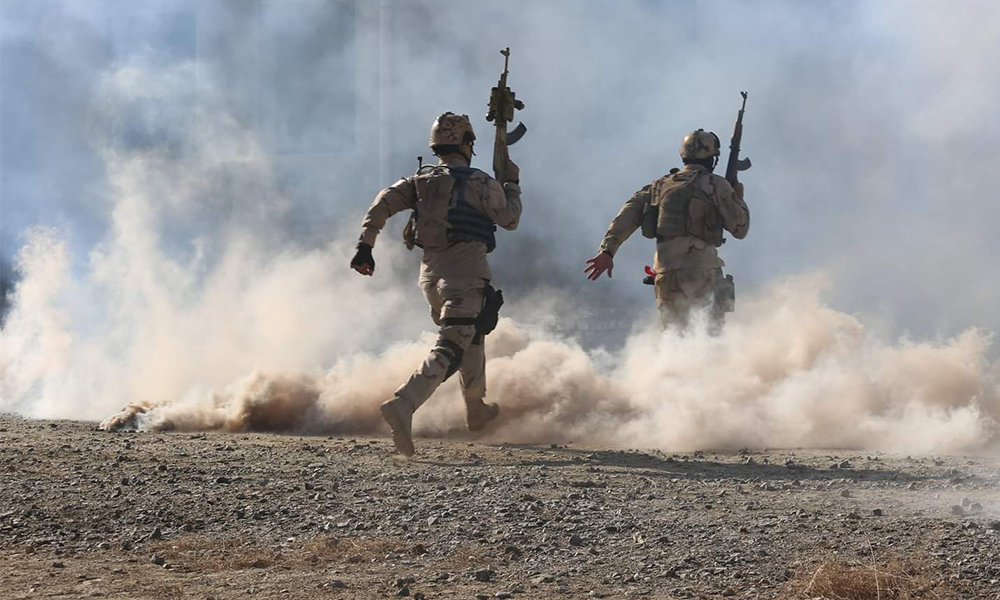Afghan security forces suffer ‘shockingly high’ casualties

At least 150 Afghan troops have been killed or injured in the last 24 hours in a surge of attacks by Taliban militants, senior government officials told Reuters on Monday.
According to the officials, fighting is now raging in 26 of the country’s 34 provinces.
The officials, speaking on condition of anonymity as the Afghan government does not give total tallies on deaths and injuries among security forces, said casualties were “shockingly high”.
This comes amid a sharp increase in the number of clashes between the Afghan security forces and the Taliban – all while US forces and NATO troops continue to withdraw.
“In the past 24 hours, there were unfortunately 157 casualties among forces,” one senior official said on condition of anonymity because they were not allowed to speak to the media.
The spike in Taliban attacks meanwhile comes amid rising concerns that Afghan government forces could lose the single most important military advantage they have over the Taliban — air power — when private contractors and U.S. troops leave the country.
Roughly 18,000 foreign contractors in Afghanistan provide an array of key services to the Afghan security forces, but they are expected to leave the country along with U.S. and NATO troops in the coming weeks.
NBC reported that without the help of foreign contractors, Afghan forces will no longer be able to keep dozens of fighter planes, cargo aircraft, U.S.-made helicopters and drones flying for more than a few more months, according to military experts and a recent Defense Department inspector general’s report.
According to Bradley Bowman, senior director of the center on military and political power at the Foundation for Defense of Democracies think tank, air power is the Afghan government’s main competitive edge in its fight against the Taliban.
Bowman, a former U.S. Army officer and Black Hawk helicopter pilot who served in Afghanistan said with the withdrawal of contractors “we’re talking about the more or less grounding of the Afghan Air Force.”
“If we don’t help them maintain those aircraft, then the Afghan security forces will be deprived of that advantage and that could have a decisive impact on the battlefield and ultimately on the state of the Afghan government,” he told NBC.
